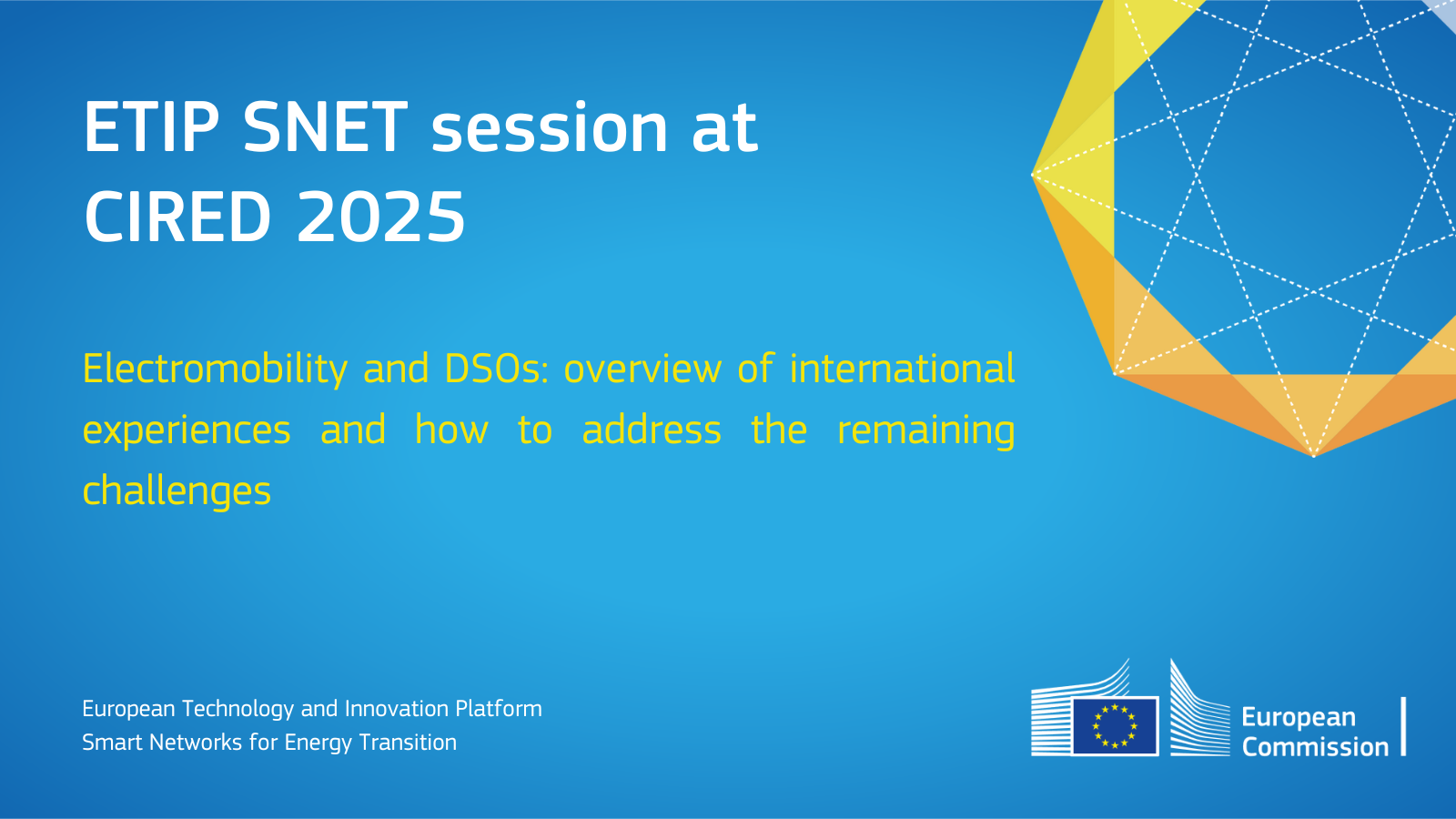
The session “Electromobility and DSOs: Overview of International Experiences and How to Address the Remaining Challenges”, co-organised with the support of ETIP SNET and moderated by Ilaria Losa (RSE, Italy and Working Group 1 Co-Chair) at CIRED 2025, brought together leading experts from Europe, North America, and Australia to discuss the future of electric mobility and its integration into distribution networks. The high-level forum also explored how Distribution System Operators (DSOs) worldwide are adapting to the rising demand for EV charging and the electrification of transport.
Key insights were presented by experts, including Albana Ilo (ETIP SNET, Austria), Jemima Hurley (EPRI, USA), Prof. Nikos Hatziargyriou (NTUA, Greece), Prof. Luis Ochoa (University of Melbourne, Australia), and Prof. Petr Musilek (University of Alberta, Canada). They shared regional experiences, highlighting smart charging, V2G technologies, rural electrification, and the role of regulatory frameworks in supporting DSO flexibility.
ETIP SNET WG1 also presented the main outcomes from its upcoming position paper “Grid Integration of Sustainable Transport.”
Central discussion focused on key questions:
- How can DSOs ensure that increasing EV loads do not jeopardise grid reliability?
- What strategies are proving effective in planning EV charging infrastructure in alignment with grid capabilities?
- Is V2G a realistic and scalable solution for grid flexibility?
What regulatory evolutions are needed to incentivise the sustainable deployment of e-mobility?
In conclusion, the panel emphasised the need for proactive, data-driven grid management, AI-based tools, interoperable platforms for real-time decision-making, and harmonised regulation. While progress is evident, experts agreed that realising a truly EV-ready grid will require global collaboration, policy coordination, and robust investment in digital and physical infrastructure.
< Back to all entries
